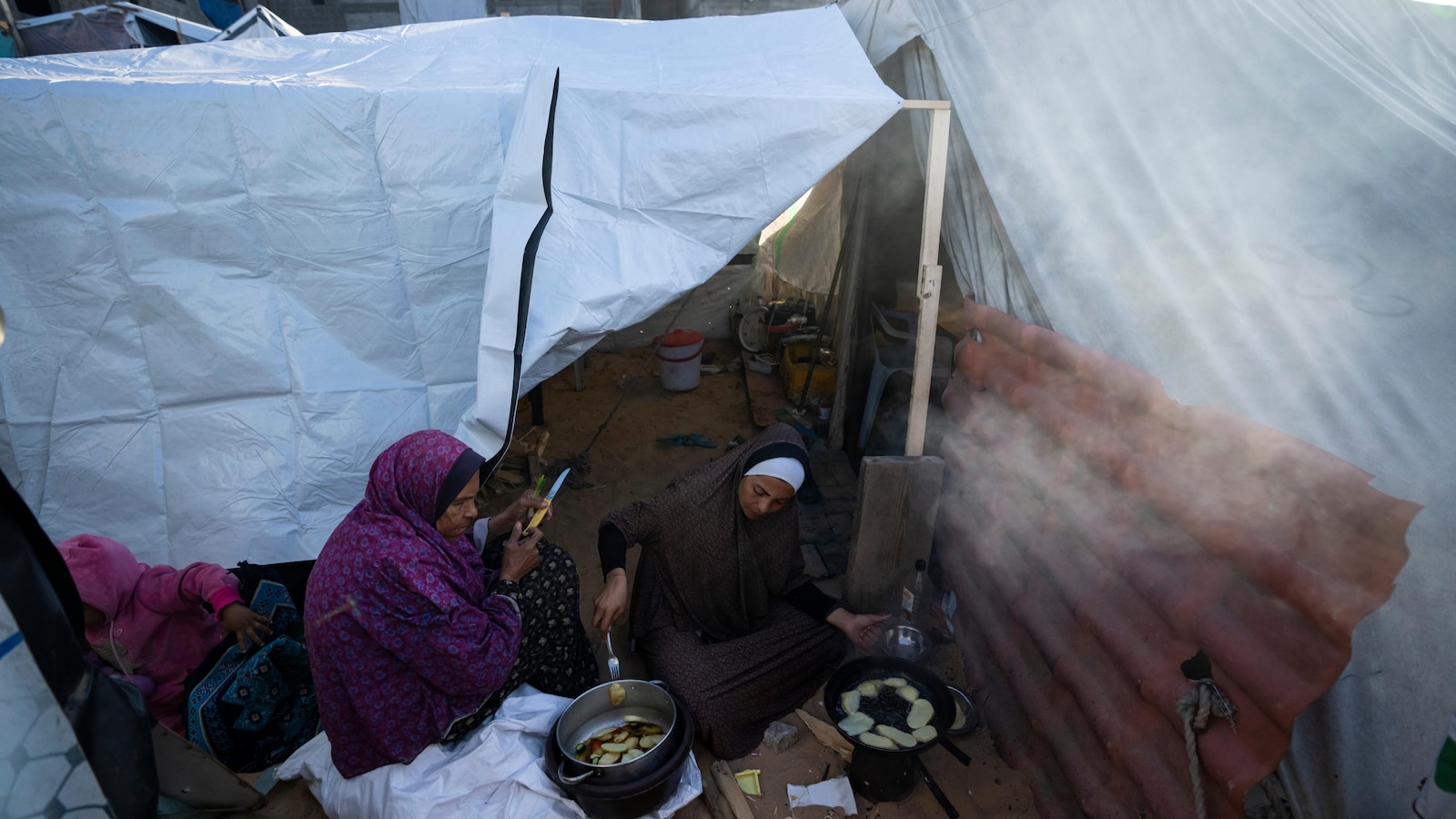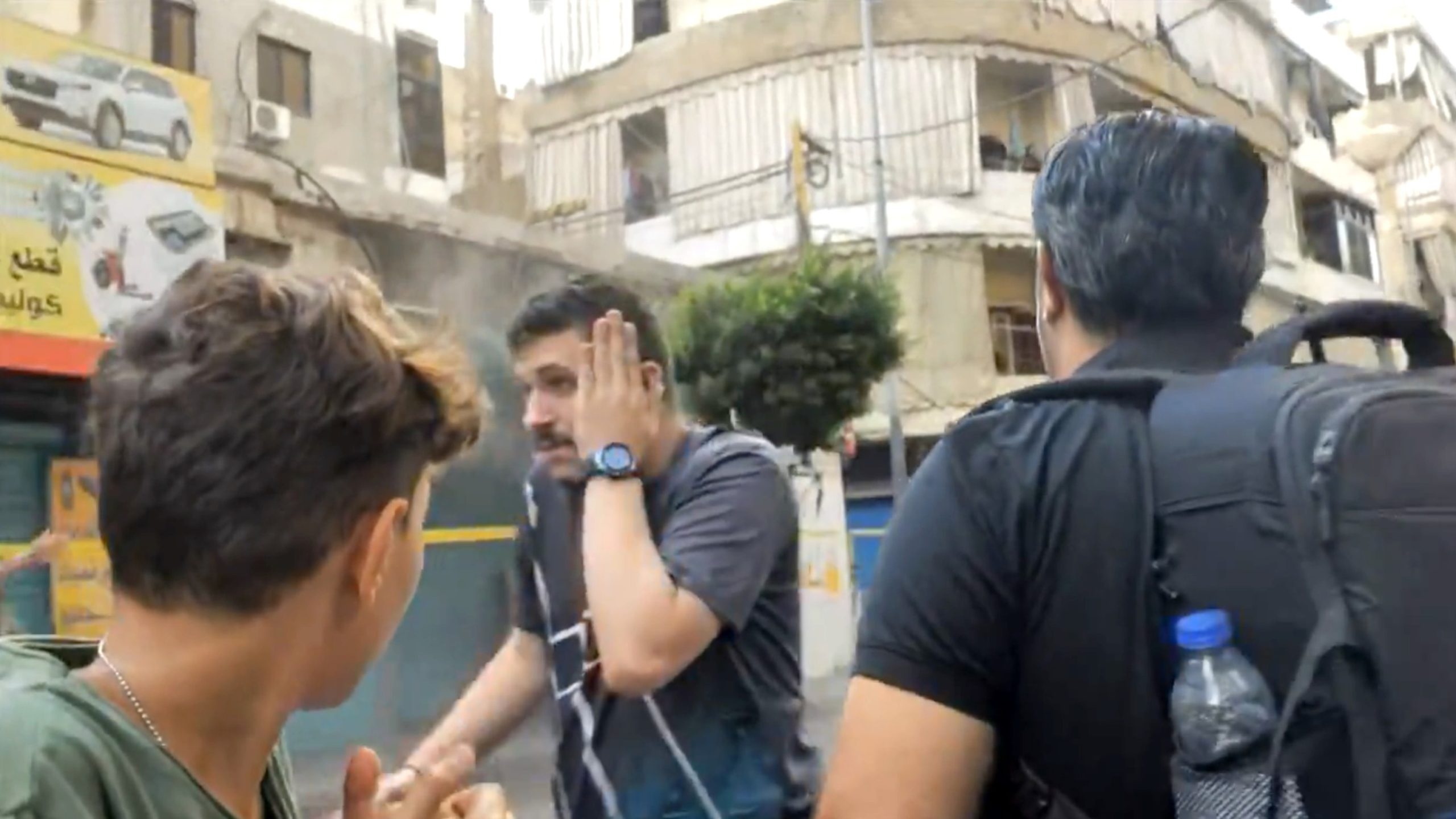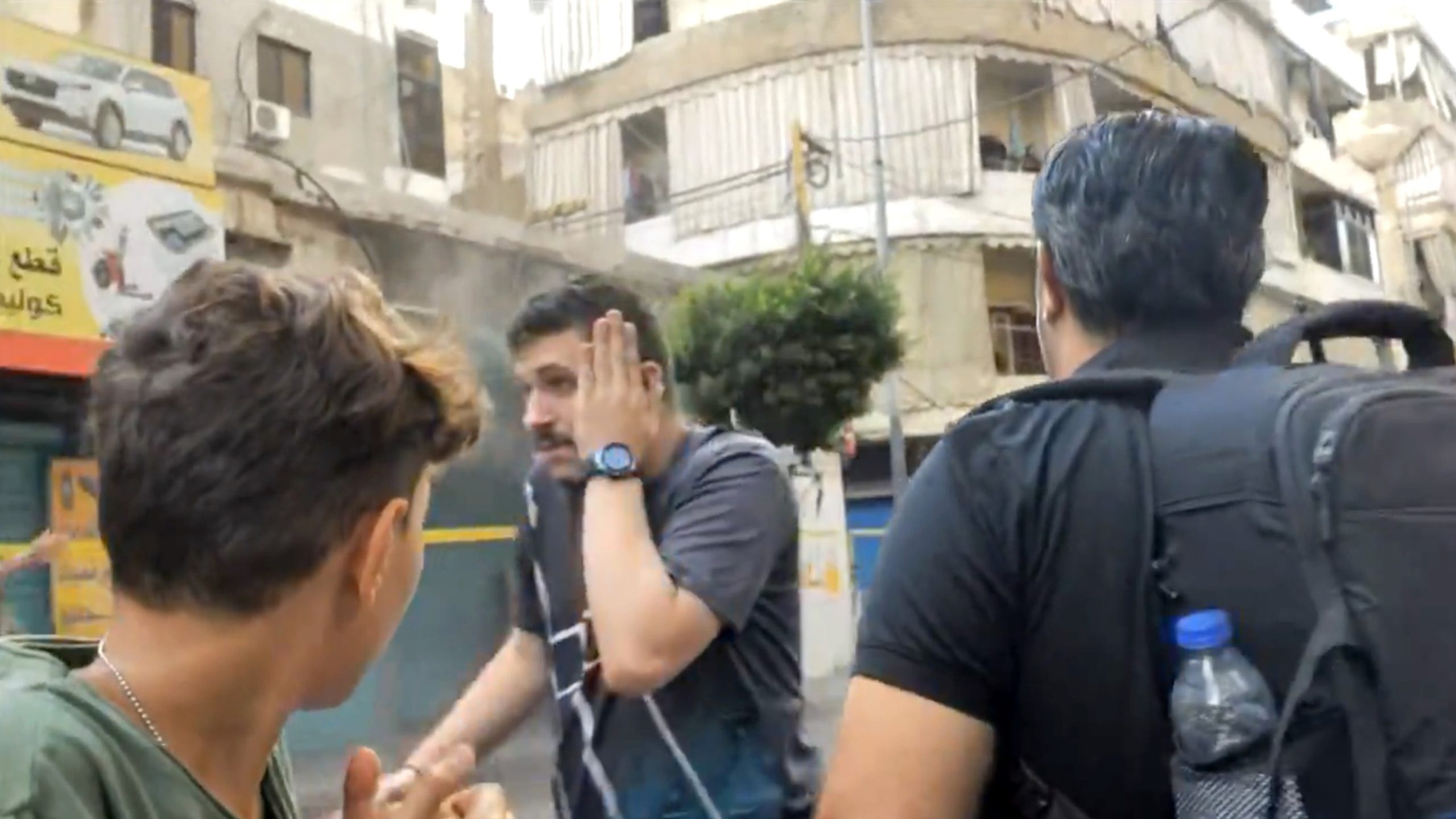
DEIR AL-BALAH, Gaza Strip — The Israeli military on Monday ordered the evacuation of part of an area in the Gaza Strip it has designated a humanitarian zone.
The military said it is planning to begin an operation against Hamas militants who have embedded themselves in the area and used it to launch rockets toward Israel. The area includes the eastern part of the Muwasi humanitarian zone, which is located in the southern Gaza Strip.
Many Palestinians have been uprooted multiple times in search of safety during Israeli’s punishing air and ground campaign.
Earlier this month, Israel said it estimates at least 1.8 million Palestinians are now in the humanitarian zone it declared covering a stretch of about 14 kilometers (8.6 miles) along the Mediterranean. Much of that area is now blanketed with tent camps that lack sanitation and medical facilities and have limited access to aid, U.N. and humanitarian groups say. Families live in the midst of mountains of trash and streams contaminated by sewage.
The announcement came during delicate negotiations seeking a cease-fire in Gaza, with U.S. and Israeli officials expressing hope that an agreement is closer than ever. A negotiating team will be sent to continue talks on Thursday, Prime Minister Benjamin Netanyahu’s office said. Egypt, Qatar and the United States are continuing to push Israel and Hamas toward a phased cease-fire deal that would stop the fighting and free the hostages.
Netanyahu left Monday morning on a much-anticipated trip to the United States to meet with President Joe Biden, who announced Sunday that he will not seek another term, and address Congress.
Netanyahu said that regardless of who becomes the next U.S. president, “our enemies must know that Israel and the United States stand together tomorrow and always.” He said he will thank Biden for more than 40 years of friendship, while also pushing him for more support on certain issues.
The war in Gaza has killed more than 38,900 people, according to the territory’s Health Ministry, which doesn’t distinguish between combatants and civilians in its count. The war began with an assault by Hamas militants on southern Israel on Oct. 7 that killed 1,200 people, most of them civilians, and took about 250 hostages. About 120 remain held, about a third of them believed to be dead, according to Israeli authorities.
The Israeli military said on Monday that it is continuing to operate in central and southern Gaza. On Sunday, Israeli airstrikes killed at least 15 people, including women and children, in Gaza, according to hospital officials and a body count by an Associated Press journalist.
The already precarious humanitarian conditions inside besieged Gaza have worsened with the discovery of the polio virus as water and sanitation services have deteriorated for the territory’s 2.3 million people, most of them displaced. Traces of the virus were found in sewage samples in Gaza. The World Health Organization has said no one has been treated for symptoms caused by the disease.
Israel’s military said soldiers would be vaccinated and it would work with organizations to bring in vaccines for Palestinians.
Netanyahu has vowed to wipe out Hamas’ military and governing capabilities and secure the return of the remaining hostages. Families of hostages and thousands of other Israelis have held weekly demonstrations to urge the prime minister to reach a cease-fire deal that would bring their loved ones home.
___
Lidman reported from Tel Aviv, Israel.
___
Find more of AP’s coverage at https://apnews.com/hub/israel-hamas-war
Israel has recently issued an evacuation order for a section of the Gaza humanitarian zone, sparking concerns and raising questions about the ongoing conflict in the region. The Israeli government has stated that the evacuation is necessary for security reasons, as they believe that there are potential threats to their citizens in the area.
The Gaza humanitarian zone was established in 2005 as part of an agreement between Israel and the Palestinian Authority to allow for the delivery of aid and supplies to the people of Gaza. The zone is meant to be a safe space for humanitarian workers and organizations to operate without fear of violence or interference.
However, tensions have been rising in the region in recent months, with frequent clashes between Israeli forces and Palestinian militants. The Israeli government has accused Hamas, the militant group that controls Gaza, of using the humanitarian zone as a base for launching attacks against Israeli civilians.
The evacuation order has been met with criticism from human rights organizations and international observers, who argue that it will only further exacerbate the humanitarian crisis in Gaza. The United Nations has called on Israel to reconsider the decision and to ensure that the rights of civilians in the area are protected.
The situation in Gaza is complex and fraught with political and religious tensions. The ongoing conflict between Israel and Palestine has resulted in the loss of countless lives and the displacement of thousands of people. The humanitarian zone was meant to be a symbol of hope and cooperation in the midst of this conflict, but now it seems that even this space is not safe from violence and instability.
As the evacuation order is carried out, it is crucial for all parties involved to prioritize the safety and well-being of civilians in the area. It is important for Israel to ensure that aid and supplies can still reach those in need, and for Hamas to refrain from using the humanitarian zone for military purposes.
Ultimately, a lasting solution to the conflict in Gaza will require dialogue, compromise, and a commitment to peace from all sides. The evacuation order is just one small piece of a much larger puzzle, but it serves as a stark reminder of the challenges that continue to face the people of Gaza and the region as a whole.


